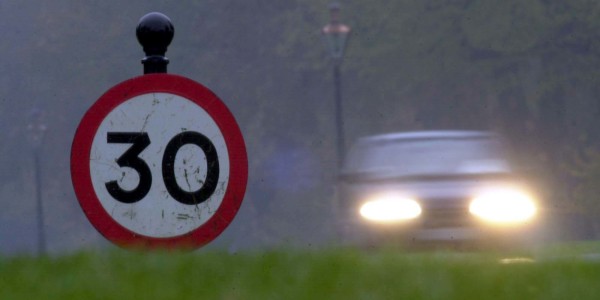Mobile speed vans and cameras are going to be clocking motorists on another 355 accident blackspots, gardai have revealed.
The new locations were identified after stretches of road were analysed for fatal and serious crashes.
The increased monitoring will mean 1,031 cameras will be watching drivers on motorways, national, regional and local roads from May 27.
The Garda traffic corps said 49 zones which have been closely watched since 2010 were being removed from the rota after no collisions were reported in the last five years.
More than half of the new camera spots will be on regional roads and almost one-third on national roads with all locations marked on a map on garda.ie.
Chief Superintendent Aidan Reid said the cameras are a vital road safety measure.
“The safety cameras are proven life savers and only operate in areas which have a speed-related collision history where fatal, serious injury and now minor injury collisions occur,” he said.
“By identifying and targeting these high-risk areas our aim is to continue to reduce the number and severity of collisions, thus save more lives and prevent more injuries from occurring. This makes the roads safer for every road user.”
He said the cameras do not make a profit for the state, but save lives
“There is no doubt these safety cameras save lives. This has been independently confirmed. They actually operate at a financial loss, but the human savings are incalculable,” he said.
The new camera points have been selected from records of collision independently assessed and given a rating depending on the severity.
Only 10km stretches of road which scored 10 on the new charts – with 10 for a fatal crash, five for a serious accident and one for a minor incident – were selected for monitoring.
The zones originally on the list but which scored below 10 in the last five years will not be monitored in the latest rota.
The Garda traffic corps said 938,000 speeding fines have been issued since the cameras began work in March 2011.
The analysis of the system by Derek Rafferty of Trinity College found the cameras cost 16.6 million euro a year to run and they have saved 71 lives in total.
The fines paid by speeding motorists cover less than half of the system’s overall operating costs, his report found.
